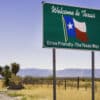Source: JD Supra—
This guide offers an overview of legal aspects of buying and selling real estate in the requisite jurisdictions. It is meant as an introduction to these marketplaces and does not offer specific legal advice. This information is not intended to create, and receipt of it does not constitute, an attorney-client relationship, or its equivalent in the requisite jurisdiction.
Neither the International Lawyers Network or its employees, nor any of the contributing law firms or their partners or employees accepts any liability for anything contained in this guide or to any reader who relies on its content. Before concrete actions or decisions are taken, the reader should seek specific legal advice. The contributing member firms of the International Lawyers Network can advise in relation to questions regarding this guide in their respective jurisdictions and look forward to assisting. Please do not, however, share any confidential information with a member firm without first contacting that firm.
This guide describes the law in force in the requisite jurisdictions at the dates of preparation. This may be some time ago and the reader should bear in mind that statutes, regulations, and rules are subject to change. No duty to update information is assumed by the ILN, its member firms, or the authors of this guide.
The information in this guide may be considered legal advertising.
Each contributing law firm is the owner of the copyright in its contribution. All rights reserved.
“Buying and Selling Real Estate in Brazil”
Lawyers at KLA – Koury Lopes Advogados – São Paulo
1. OVERVIEW OF BRAZILIAN HISTORY
Brazil is a federative republic and the largest country in both South and Latin America. It is also the world’s fifth-largest country by area and sixth by population. In the Americas, it is the only country where Portuguese is the official language.
Bordered by the Atlantic Ocean on the east, Brazil has a coastline of 7,491 kilometers (4,655 mi). It borders all other South American
countries except Ecuador and Chile and covers 47.3% of the continent’s land area. The Amazon is a world-renowned vast tropical forest, home to diverse wildlife, a variety of ecological systems, and extensive natural resources spanning numerous protected habitats. This unique environmental heritage makes Brazil focal point of significant global interest and debate regarding foreign ownership of rural land, deforestation, and environmental protection.
Explorer Pedro Álvares Cabral claimed the area for the Portuguese Empire in 1500. Brazil remained a Portuguese colony until 1808, when the capital of the empire was transferred from Lisbon to Rio de Janeiro. In 1815, the colony was elevated to the status of kingdom upon the formation of the United Kingdom of Portugal, Brazil and the Algarves. Independence was conferred in 1822 with the creation of the Empire of Brazil, a unitary state governed by a constitutional monarchy and a parliamentary system. The ratification of the first constitution in 1824 led to the formation of a bicameral legislature, now called the National Congress and also marked the introduction of the real property registry system. The country became a presidential republic in 1889 following a military coup. A military junta came to power in 1964 and held power until 1985, after which civilian rule was reinstated. Brazil’s current constitution, formulated in 1988, defines it as a democratic federal republic.
The federation comprises the union of the Federal District of Brasília, 26 States, and 5,570 Municipalities. The legal system of all States and the Federal District is governed by the Civil Law system, derived from the French Napoleonic Code, as reflected primarily in the Civil Code.
In practice, this means that just Brazilian State regulations on notarial and conveyancing matters, together with the municipal ordinances on urban property taxation bring over 5,597 different enacted provisions into consideration when acquiring real estate in Brazil!
2. DIFFERENT TYPES OF REAL PROPERTY
The classification of a property depends on its use and it is, therefore, irrelevant where the property is located (i.e. property located in an urban area with municipal zoning regulations will be considered rural property if used for rural purposes). There are two main types of property:
a) Rural property.
b) Urban property.
Urban properties can be classified as residential, commercial, and industrial. The ownership of urban property may be classified as fractional ownership, joint ownership in a condominium building or a co-ownership in an ordinary condominium.















